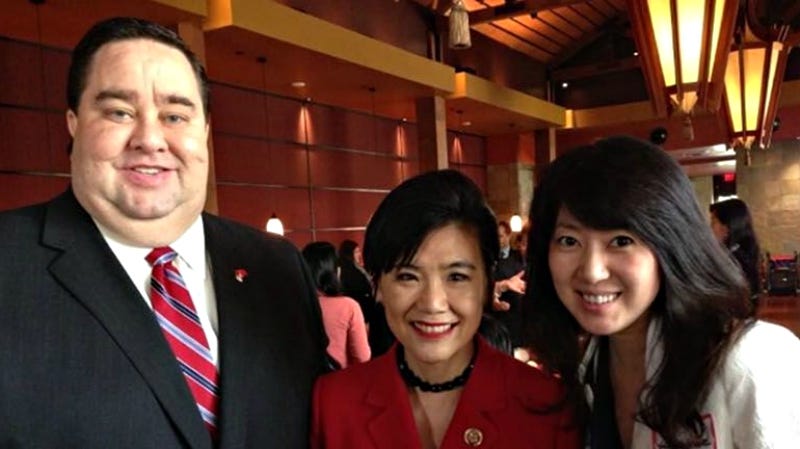The idea of China infiltrating the Federal Reserve was one that even I didn’t have on my espionage “Bingo” card. Though, with all of my recent musings about how China clearly wants to be the next global economic superpower – and how the country has taken steps to de-dollarize over the last decade – it really shouldn’t have come as a surprise that a new investigation found exactly that: China is trying to spy on the Fed.
Stunning new revelations broke just hours ago, after the Wall Street Journal dropped a bombshell of a report, summarizing that a Congressional investigation that found:
-
China tried to build a “network of informants” at the Central Bank
-
China detained and threatened to imprison a Fed economist if he didn’t turn over material non-public information
-
Fed employees were offered cash payments from Chinese talent recruitment programs in exchange for information on interest rate and monetary policy
Further revealing that China plays the “long game” when it comes to global espionage, the report detailed China’s long con for trying to gain access to proprietary U.S. economic information and data managed by the Fed:
“China tried to build a network of informants inside the Federal Reserve system, at one point threatening to imprison a Fed economist during a trip to Shanghai unless he agreed to provide nonpublic economic data, a congressional investigation found.
The investigation by Republican staff members of the Senate’s Committee on Homeland Security and Governmental Affairs found that over a decade Fed employees were offered contracts with Chinese talent recruitment programs, which often include cash payments, and asked to provide information on the U.S. economy, interest rate changes and policies, according to a report of the findings released on Tuesday.”
I have warned about China’s patience when it comes to espionage in the past, stating that the country’s efforts to ascertain U.S. information were helped along by their willingness to take their time. The efforts at the Fed spanned a decade, the report says – and those are just the efforts that we know about.
On U.S. soil, China is forced to play the long game – it’s one of the best ways to be effective in compromising targets. But, as one Fed economist found out, and as many short sellers who have targeted Chinese companies have also found out, when you’re in China, the game isn’t such a long con. It’s played with force and intimidation:
“Chinese officials in 2019 detained and tried to coerce [the Fed economist] to share data and information on U.S. government policies, including on tariffs while the U.S. and China were in the midst of a trade war.”
Another reason China moves slowly is because when implemented over time, it’s difficult for other nations to even see they are being targeted. Just ask Jerome Powell, who – in a move of stunning hubris – rejected the findings of the investigation, stating:
“Because we understand that some actors aim to exploit any vulnerabilities, our processes, controls, and technology are robust and updated regularly. We respectfully reject any suggestions to the contrary.”
The Wall Street Journal report continued, calling the effort to infiltrate the Fed one of the “among the broadest campaigns to obtain U.S. government information and proprietary business secrets and scientific and technology research,” citing U.S. counterintelligence officials.
Even more stunning is that, despite the fact that the Congressional investigation’s findings were helped along by “a separate internal Fed investigation conducted by the central bank beginning in 2015,” the Fed doesn’t seem like it wants to acknowledge that China is even a threat.
The Fed provided its findings to Congress in 2020, but now appears to be recanting their findings, disputing “many results of its inquiry” and even now mysteriously saying it “cannot locate some of the investigative materials” from years past.
Examples like this one remain one of the reasons I continue to note cybersecurity as an area of interest for my investments (you can view my entire portfolio outlook and take on the macroeconomy at this article). With continued revelations like these, in addition to China’s recent standoffish attitude toward the U.S. and Taiwan, the “war” against China – whether fought conventionally, in the cyber-world, or both – could only be just beginning.
One of the things I talk about often on my podcast and in my blog is how adept at espionage Beijing is.
It seems like nary a day goes by that we don’t hear a story about another Chinese spy infiltrating prestigious and well known U.S. institutions like the New York Police Department or Harvard University.
And who could forget Fang Fang, AKA Chinese spy Christine Fang, who took the ultimate “one for the team” by banging her way across the political spectrum in the U.S. in order to gain access to sensitive political information.
And – I mean this in the nicest, but most realist way possible – if you think U.S. political officials aren’t incredibly naïve and vulnerable marks, just think about the fact that former Fremont Mayor Bill Harrison was likely thinking, “Hey I think this woman really likes me!”


In fact, I often point out that our government institutions were/are lined with Hikvision cameras, which some have alleged could be used by the Chinese government to spy on military and government here in the U.S.


Often, I talk about the idea that nobody thinks espionage could be happening this way because it’s just too brazen and obvious. Somebody would have caught on if that was the case, right?
Don’t be too sure of that: sometimes the “big lie” winds up being the most effective.
And it certainly puts this 2019 tweet from President Donald Trump in context:



